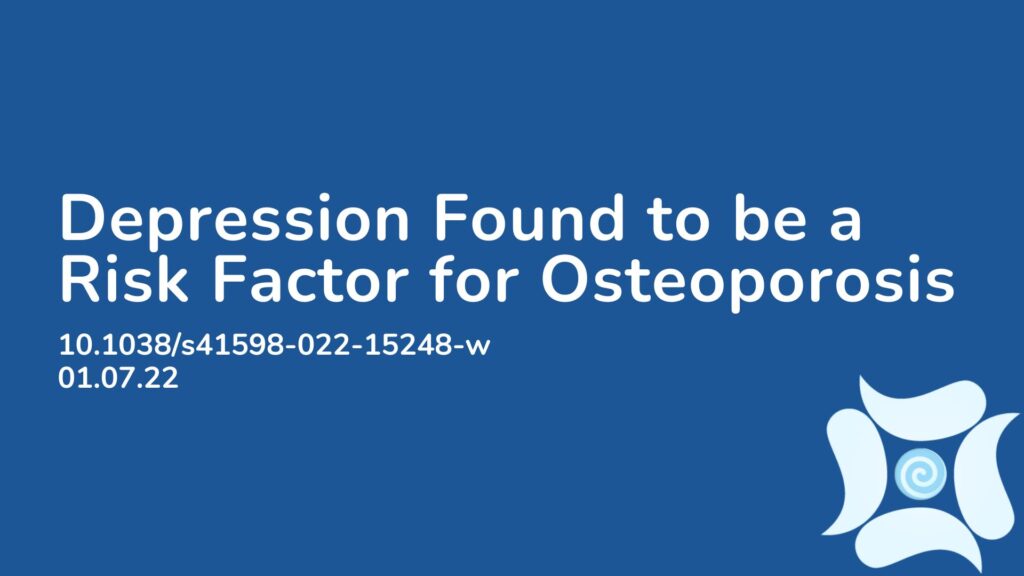Summary: Osteoporosis is recognized as a major public health concern and the most common metabolic bone disease. Factors that increase someone’s likelihood of developing osteoporosis include family history, aging, gender, menopause, cigarette smoking, alcohol, low body mass index, calcium and vitamin D deficiencies, high levels of sodium and caffeine intake, sedentary lifestyle, long-term corticosteroid use and other comorbidities. Some studies have elucidated a relationship between depression and osteoporosis, explained by depression’s association with a decrease in estrogen and testosterone levels. Additionally, depression is an inflammatory condition. The aim of this study was to understand the relationship between depression and osteoporosis and the results showed that people with osteoporosis have higher rates of depression. According to these results, depression should be considered as a risk factor for osteoporosis in the same way smoking or low calcium intake is.
Abstract:
Osteoporosis is the most common metabolic bone disease. The complications of osteoporosis have influence on people’s lives and lead to anxiety and depression. The aim of this study was to determine the relationship between osteoporosis and depression among Iranian patients. This cross-sectional analytical survey study conducted among 500 patients referred to a Bone Densitometry Center in Iran. They were assigned into with osteoporosis group (n = 250) and non-affected group (n = 250). The Persian version of the 13-item Beck Depression Inventory (BDI) was used to assess depression. ANOVA, independent t-test, chi-square were used to compare the data. All analyses were done using SPSS version 22 software. A P value ≤ 0.05 represented statistical significance. The majority of people with osteoporosis (86.9%), suffered from mild to moderate depression and the majority of normal people (84.6%) were non-depressed. The mean scores (SD) of depressions in the patients with osteoporosis and normal status was 6.94 (2.39) and 2.50 (1.01), respectively. Statistical analyses showed that the mean scores of depressions significantly different between the two groups (P < 0.05). The results indicate that depression is associated with osteoporosis. As a result, physicians are expected to pay attention to depression in people with osteoporosis and to treat it.
Article Publication Date: 01.07.22
DOI: 10.1038/s41598-022-15248-w



